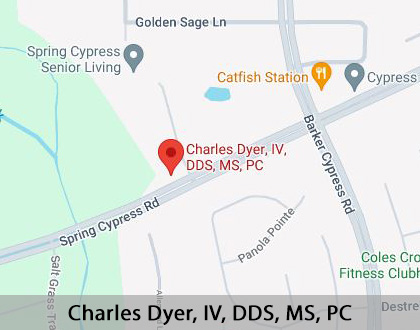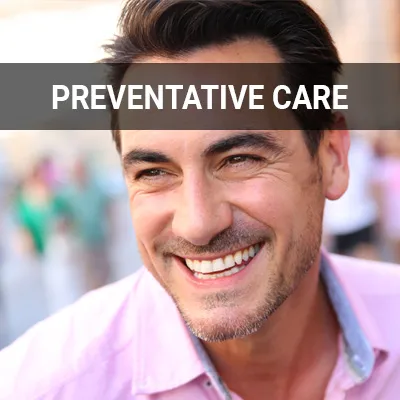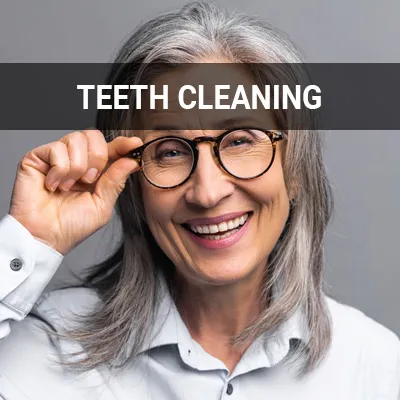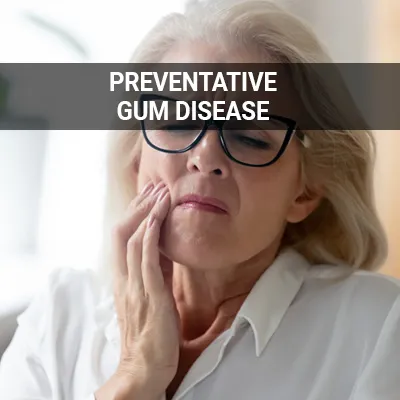Bruxism Treatment Cypress, TX
Bruxism treatment can help many people relax their jaws and reduce damage to the teeth. Those with bruxism may unconsciously clench or grind their teeth when they are either awake or asleep. Fortunately, a periodontist can help with bruxism treatment.
Bruxism treatment is available at Charles E. Dyer IV, DDS, MS, PC in Cypress and the surrounding area. Let us help you. Call us today at (281) 213-0900 to schedule an appointment or learn more about our services.
Understanding Bruxism
Bruxism is a condition that causes the patient to grind, gnash, or clench their teeth while they are awake (awake bruxism) or asleep (sleep bruxism). Sleep bruxism is classified as a sleep-related movement disorder. People with sleep bruxism are also more likely to have other sleep disorders, such as sleep apnea.
While mild bruxism may not require treatment, frequent and severe bruxism can lead to jaw disorders, headaches, damaged teeth, and other problems. Furthermore, it is not uncommon for people with sleep bruxism to be unaware of their condition until complications develop. As such, it is imperative to know the signs and symptoms of bruxism and to see a dentist regularly.
“Bruxism is a condition that causes the patient to grind, gnash, or clench their teeth while they are awake (awake bruxism) or asleep (sleep bruxism).”
Causes and Symptoms of Bruxism
According to the Mayo Clinic, experts still do not quite understand the exact cause of bruxism. However, it may be due to a combination of genetic, physical, and psychological factors. For example, awake bruxism may be attributed to negative emotions, such as anger, anxiety, frustration, stress, or tension. It may also be a coping strategy or a habit related to deep concentration. Sleep bruxism, on the other hand, may be attributed to arousals during sleep.
The telltale signs of bruxism include teeth grinding or clenching. In those with sleep bruxism, this symptom may be loud enough to wake up one's partner. Teeth may also become flattened, fractured, chipped, or loose because of this habit, and tooth enamel may become worn. Other common signs and symptoms of bruxism include:
- Damage from chewing on the inside of the cheek
- Dull headache starting in the temples
- Increased tooth pain or sensitivity
- Jaw, neck, or face pain or soreness
- Locked jaw that will not open or close completely
- Pain that feels like an earache, despite not actually having to do with the ear
- Sleep disruption
- Tired or tight jaw muscles
“According to the Mayo Clinic, experts still do not quite understand the exact cause of bruxism.”
Common Risk Factors for Bruxism
According to the Sleep Foundation, sleep bruxism occurs more frequently in children, adolescents, and young adults than in middle-aged and older adults. Still, it is difficult to estimate just how many people have sleep bruxism because it is so easy for the condition to go unnoticed. In any case, studies have found that anywhere from approximately 6% to nearly half of all children experience nighttime teeth grinding. With adolescents, the prevalence of sleep bruxism is estimated at around 15%.
While sleep bruxism typically subsides in adulthood, there are some other risk factors that may make one more susceptible to bruxism. Risk factors for bruxism include:
- Family History. Those with family members with bruxism tend to be likelier to have bruxism themselves.
- Medications and Other Substances. Bruxism is sometimes associated with certain psychiatric medications, like certain antidepressants. Smoking tobacco, using recreational drugs, or drinking caffeinated beverages or alcohol may also increase one’s risk.
- Other Disorders. Some mental health and medical disorders, such as Parkinson’s disease, gastroesophageal reflux disorder (GERD), and more, are associated with bruxism.
- Personality Type. Those with aggressive, competitive, or hyperactive personality types are typically likelier to have bruxism.
- Stress. Anger, frustration, and increased stress or anxiety can lead to teeth grinding
“According to the Sleep Foundation, sleep bruxism occurs more frequently in children, adolescents, and young adults than in middle-aged and older adults.”
Check out what others are saying about our dental services on Yelp: Bruxism Treatment in Cypress, TX
Benefits of Bruxism Treatment
Most cases of bruxism do not cause serious complications. However, severe bruxism may lead to the following:
- Damage to the teeth, restorations, crowns, or jaw
- Disorders in the temporomandibular joints (TMJs, also known as TMJ disorder)
- Severe facial or jaw pain
- Tension-type headaches
In particular, TMJ disorder can cause tenderness at the joint, facial pain, and difficulty moving the joint. Possible complications include chronic pain, dental problems, and limited jaw function. As such, it is crucial to seek treatment for bruxism, especially sleep bruxism. Prompt and proper treatment from a periodontist can save teeth or even reverse the consequences of the condition.
“Prompt and proper treatment from a periodontist can save teeth or even reverse the consequences of the condition.”
Questions Answered on This Page
Q. Who is more prone to bruxism?
Q. What are some of the possible complications of bruxism?
Q. What are some treatment methods for bruxism?
People Also Ask
Q. What is preventative care in dentistry? What is preventative care in periodontics?
Q. What are the advantages of a periodontal teeth cleaning?
Treatment Methods for Bruxism
Fortunately, there are several treatment methods for bruxism. A periodontist can help. Dental approaches may include splints, mouth guards, and dental correction. Splints and mouthguards can keep the teeth separated, allowing the patient to avoid the damage caused by clenching and grinding.
These devices may be constructed of hard acrylic or soft materials and fit over the upper or lower teeth. If the teeth have already been damaged, a periodontist may need to reshape the teeth's chewing surfaces or install crowns to repair the damage. We can help determine the best option for each patient.
“Dental approaches may include splints, mouth guards, and dental correction.”
Frequently Asked Questions
Q. Do occlusal guards stop bruxism?
A. Occlusal guards are also known as bite guards, night mouth guards, or sleep mouth guards. We can create these devices for those who suffer from sleep bruxism. While they cannot cure sleep bruxism, they can cushion and protect the teeth, preventing any future damage.
Q. Is it okay to use a sports mouth guard as a dental night guard?
A. While it may be tempting to use a sports mouth guard in place of a dental night guard, it is typically not recommended. For one thing, they are generally larger and more uncomfortable to wear in one's sleep. They may also alter the patient's bite, putting them at risk for more invasive dental work. This is especially true for stock mouth guards, which are not designed specifically for the patient's mouth.
Q. Is there a way to cure bruxism?
A. While there is no known cure for bruxism, stopping teeth grinding is mostly dependent on attacking its root cause. For example, patients who grind their teeth out of stress may want to consider reducing their stress levels or taking on new stress management techniques. We can help determine the best course of action for you.
Q. What makes bruxism so harmful?
A. Teeth grinding tends to exert an exponentially greater force on the teeth than is normal. As such, severe damage may be done to the teeth and the jaw. Teeth may be worn away and jaw muscles may lock, among other potential complications.
Q. How is bruxism diagnosed?
A. Patients with awake bruxism can usually self-diagnose the condition. However, patients with sleep bruxism may not know that they have the condition until they visit a periodontist. We can look for enamel erosion patterns of bruxism to determine the best course of action for you.
Start Feeling Better – Visit Us Today
By visiting us as soon as possible, our team can help get you the professional treatment you need. Instead of waiting around and allowing the symptoms to get worse, we can provide you with treatment options.
Definitions
Call Us Today
Bruxism treatment can save your teeth. We at Charles E. Dyer IV, DDS, MS, PC can help. Call us today at (281) 213-0900 to schedule an appointment or learn more about our services.
Helpful Related Links
- American Academy of Periodontology (AAP). American Academy of Periodontology (AAP). 2023
- Center for Disease Control and Prevention (CDC), Periodontal Disease Page. Center for Disease Control and Prevention (CDC), Periodontal Disease Page. 2023
- WebMD, What Is a Periodontist?. WebMD, What Is a Periodontist?. 2023
About our business, license, and website security
- Charles E. Dyer IV, DDS, MS, PC was established in 2007.
- We accept the following payment methods: American Express, Cash, Check, Discover, MasterCard, and Visa
- We serve patients from the following counties: Harris County, Washington County, and Waller County
- We serve patients from the following cities: Cypress, Houston, Katy, Spring, The Woodlands, Brenham, Waller, Sugar Land, Jersey Village, and Hempstead
- TX (License #21174). View License Information and Specifics
- National Provider Identifier Database (1285771352). View NPI Registry Information
- Healthgrades. View Background Information and Reviews
- Norton Safe Web. View Details
- Trend Micro Site Safety Center. View Details
Back to top of Bruxism Treatment










